Reading comprehension Normal Life Science Worksheets for Ages 8-9
5 filtered results
-
From - To
Enhance your child's understanding of the natural world with our Reading Comprehension Normal Life Science Worksheets, perfect for ages 8-9. These engaging worksheets cover a range of life science topics, blending intriguing stories with factual content to foster curiosity and learning. Each worksheet is designed to improve reading comprehension skills, ensuring children can absorb and recall scientific information effectively. From habitats to life cycles, our worksheets offer an educational adventure that aligns with school curricula. Help your child gain a deeper appreciation of life science while honing their reading skills—explore our carefully crafted worksheets today!
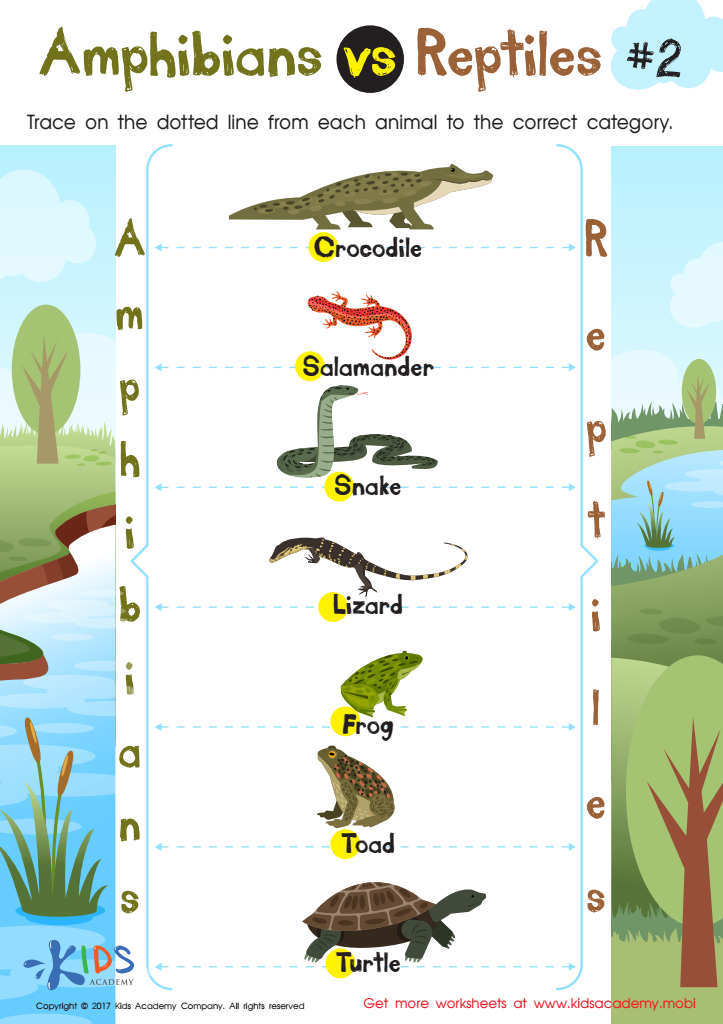

Amphibians vs Reptiles Worksheet for 3rd Grade
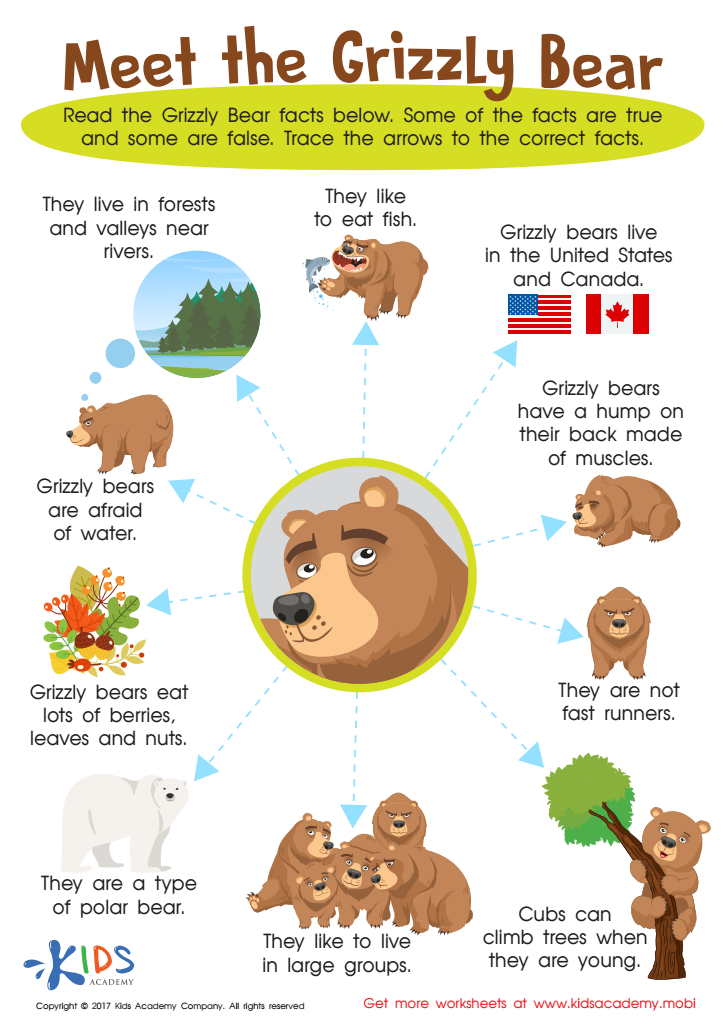

Grizzly Bear Facts Worksheet
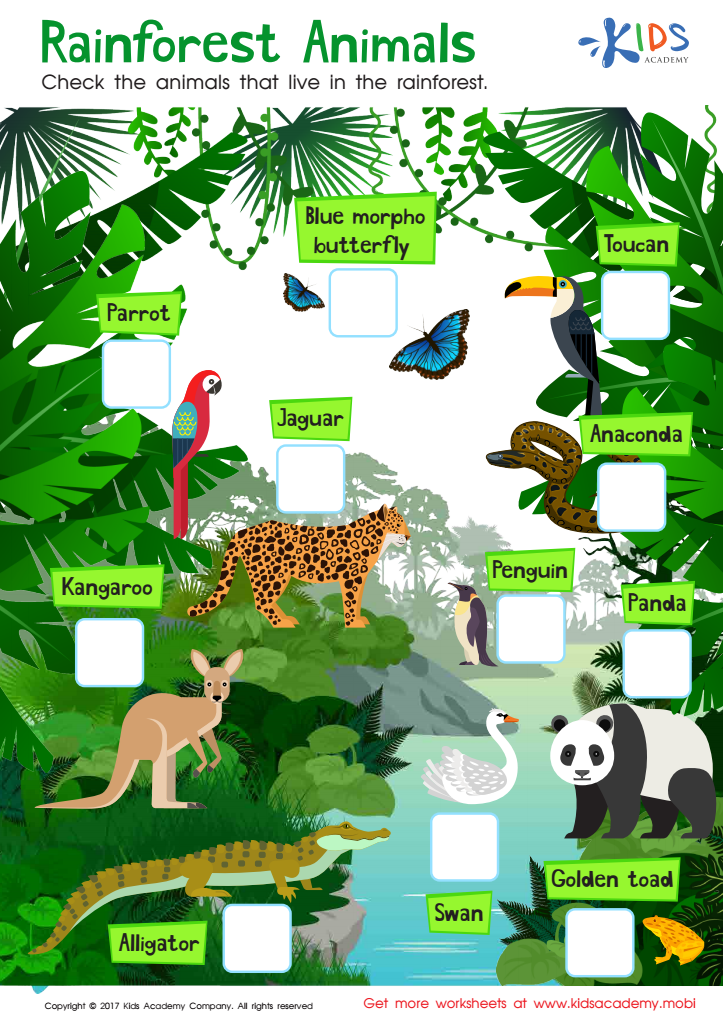

Rainforest Animals Worksheet
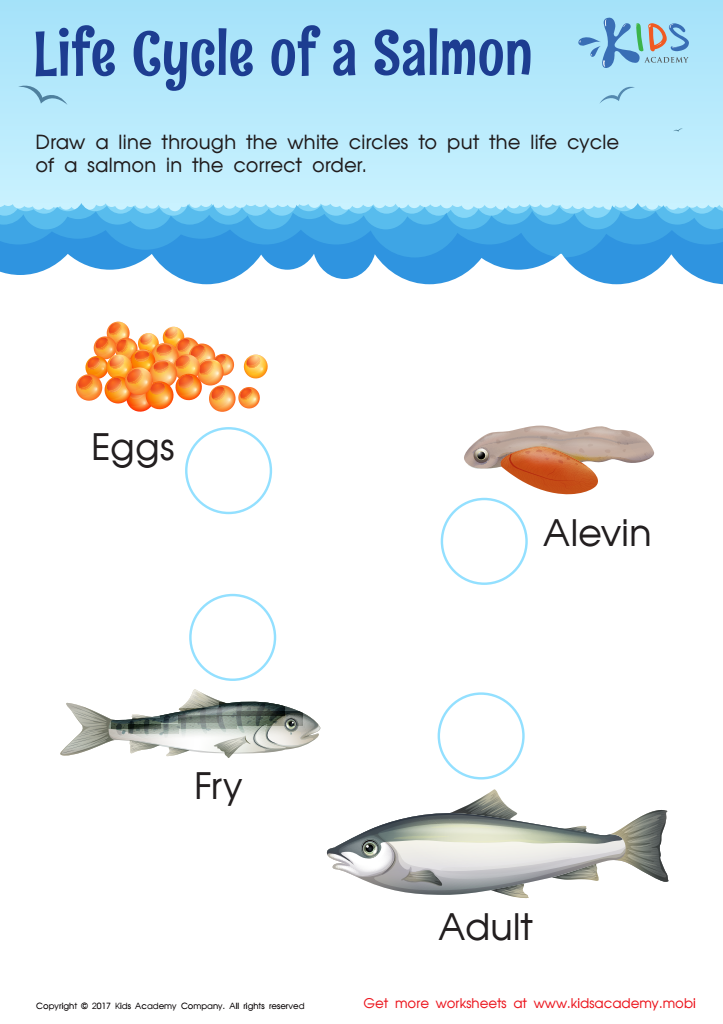

Cycle Of Salmon Worksheet
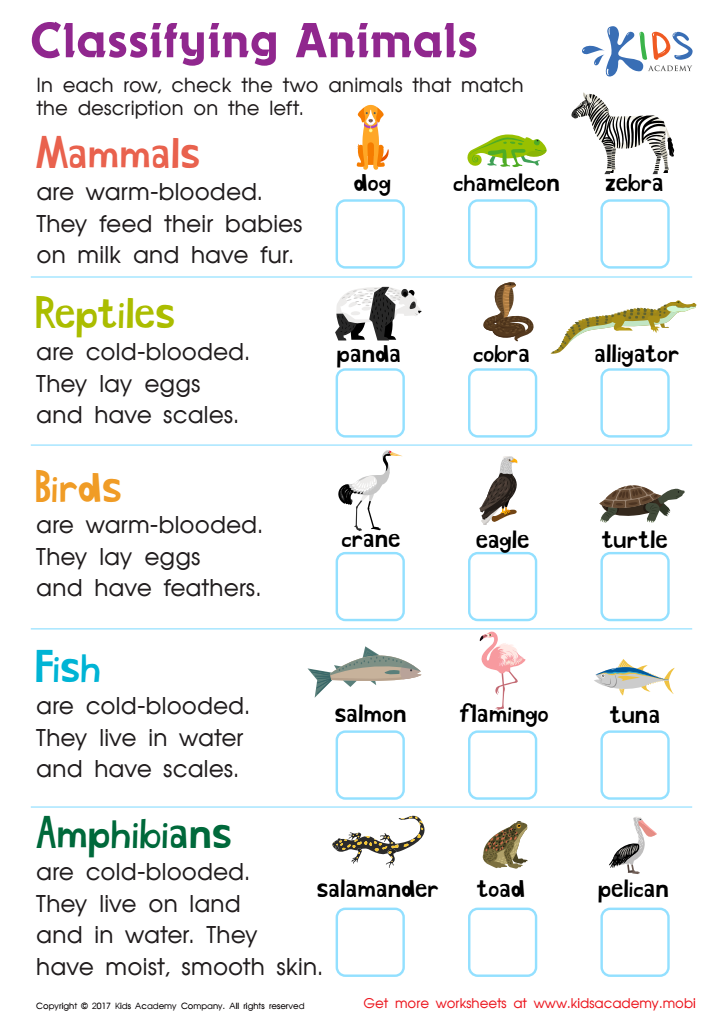

Classifying Animals Worksheet
Reading comprehension, particularly in the context of Normal Life Science for ages 8-9, is a cornerstone of a child's cognitive and academic development. At this age, young learners are transitioning from learning to read to reading to learn, making it imperative to foster strong comprehension skills.
Understanding Life Science concepts helps children make sense of the world around them. They learn about plants, animals, the human body, and ecosystems, gaining a fundamental grasp of essential life processes and environmental relationships. This knowledge is critical for fostering scientific curiosity and encouraging critical thinking.
Moreover, reading comprehension in science nurtures communication skills. When children understand what they read, they can summarize information, ask questions, and engage in meaningful discussions about scientific topics. This enhances their vocabulary and bolsters their ability to articulate thoughts clearly, thereby improving both oral and written expression.
In addition, strong reading comprehension impacts overall academic success. Children who excel in understanding science texts are better poised to perform well in other subjects, as many academic disciplines require proficient reading and comprehension skills.
Ultimately, prioritizing reading comprehension in Life Science not only equips children with scientific knowledge but also fosters a lifelong love for learning and discovery. This solid foundation paves the way for future educational achievements and can inspire a career in the sciences, benefiting society as a whole.
 Assign to My Students
Assign to My Students





%20(1).jpg)
















